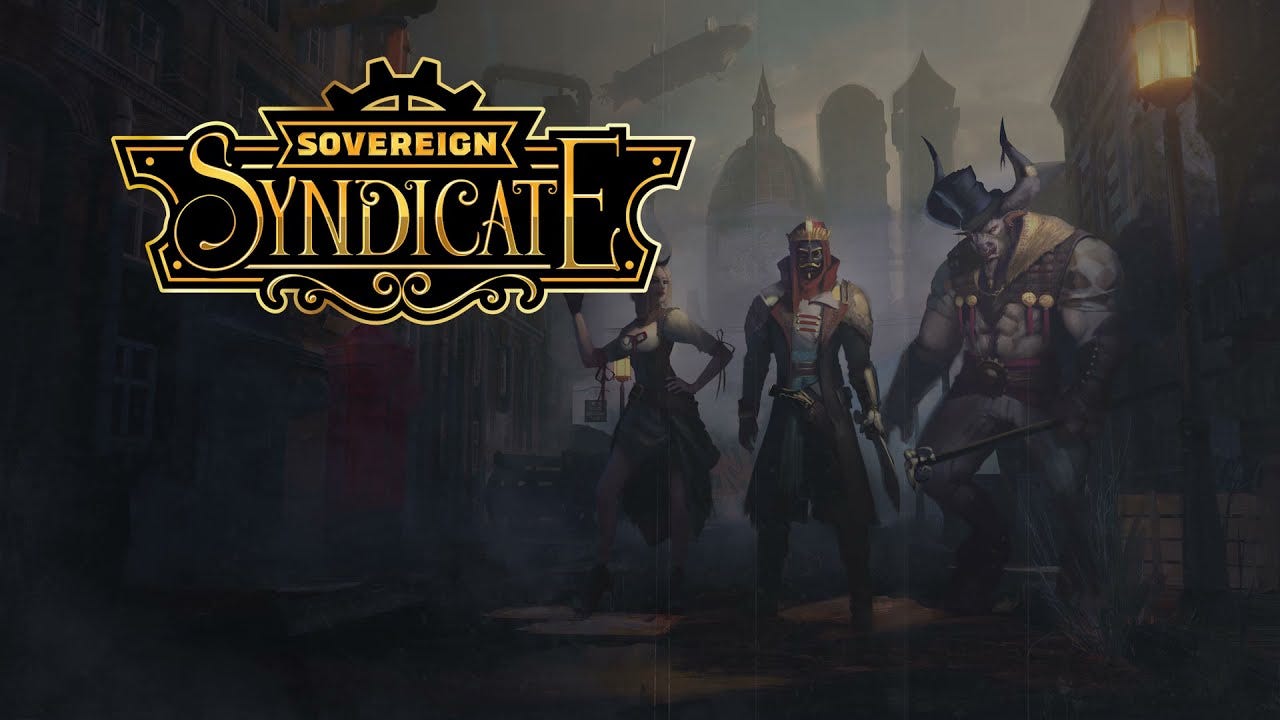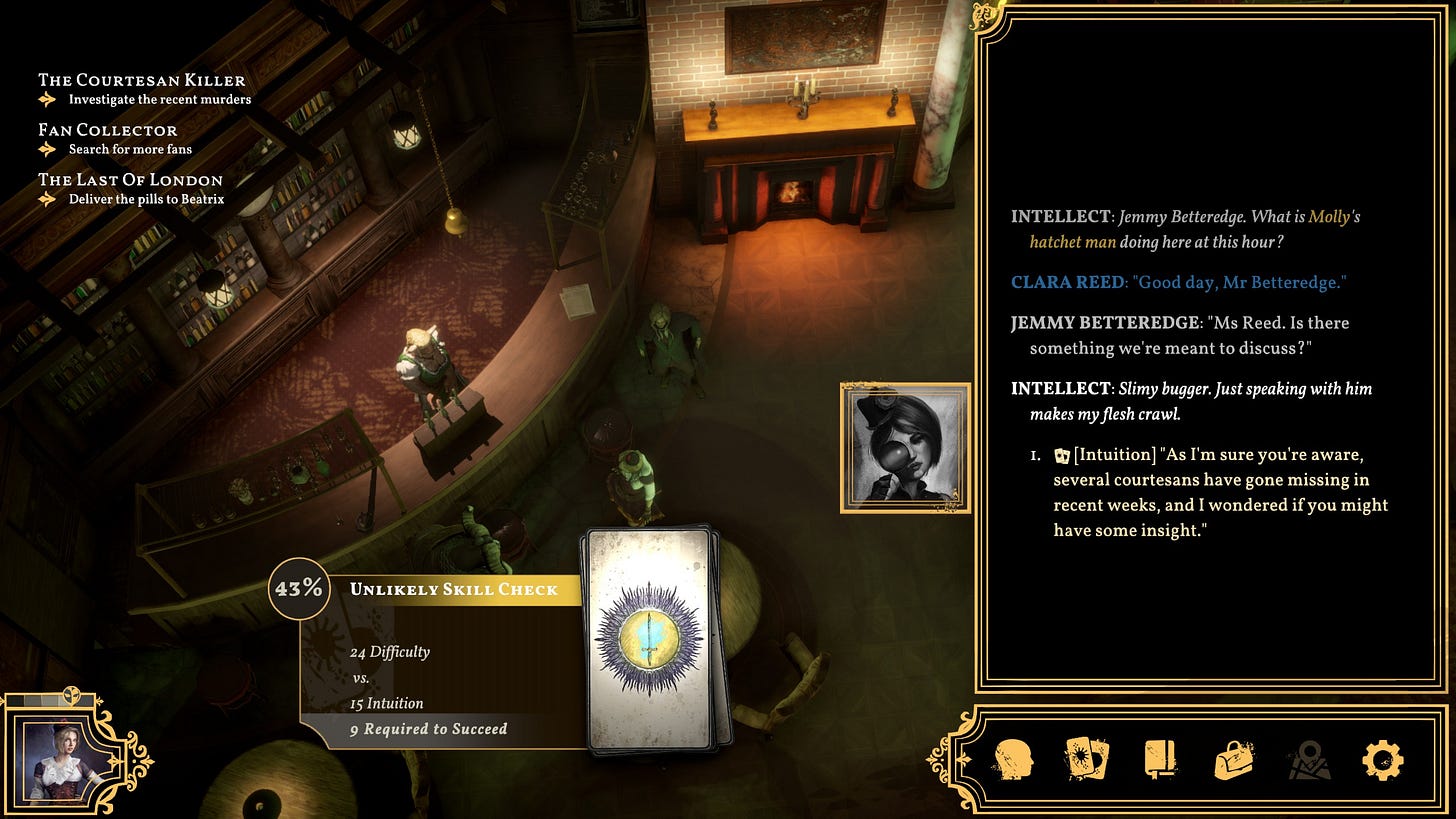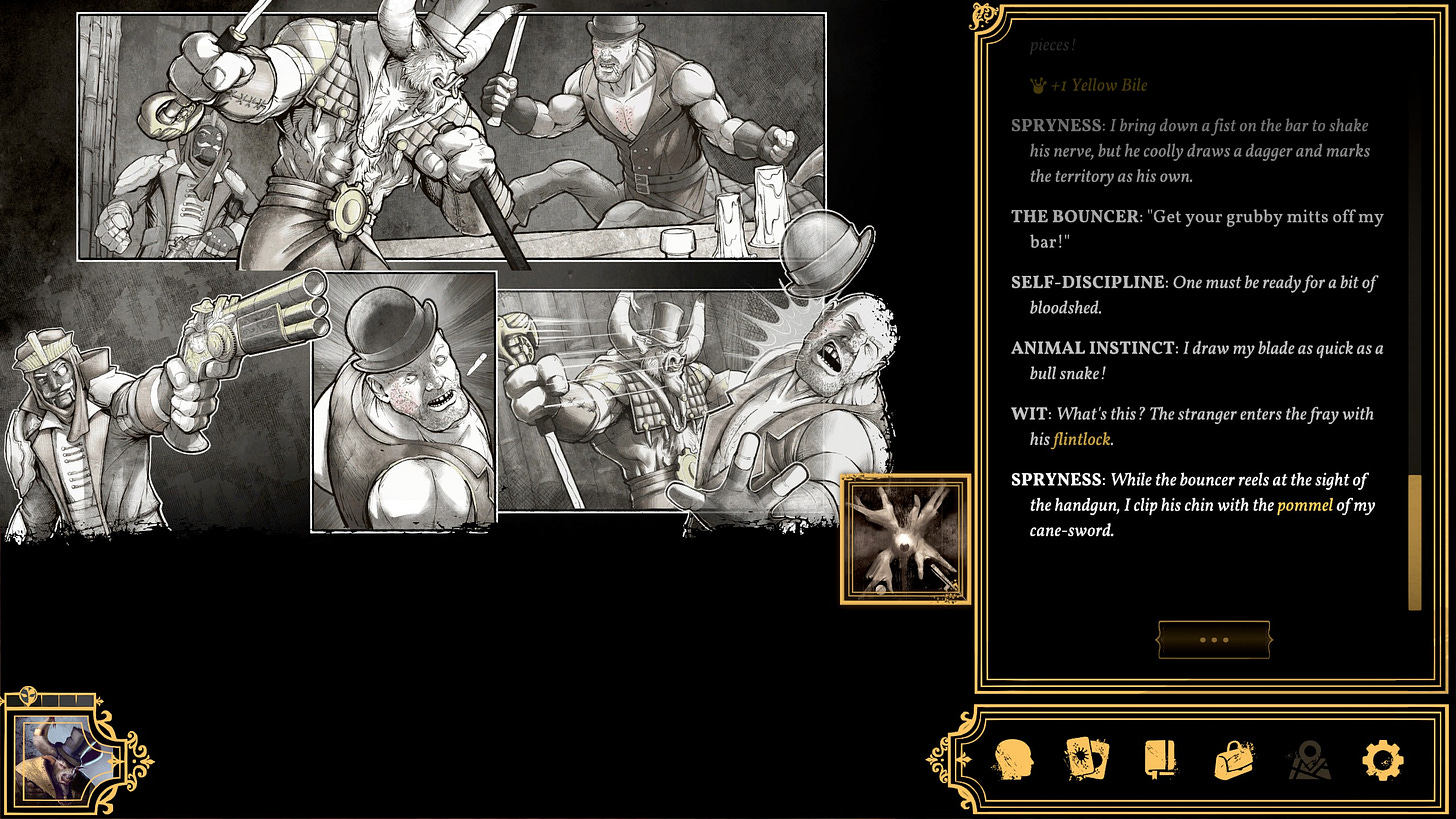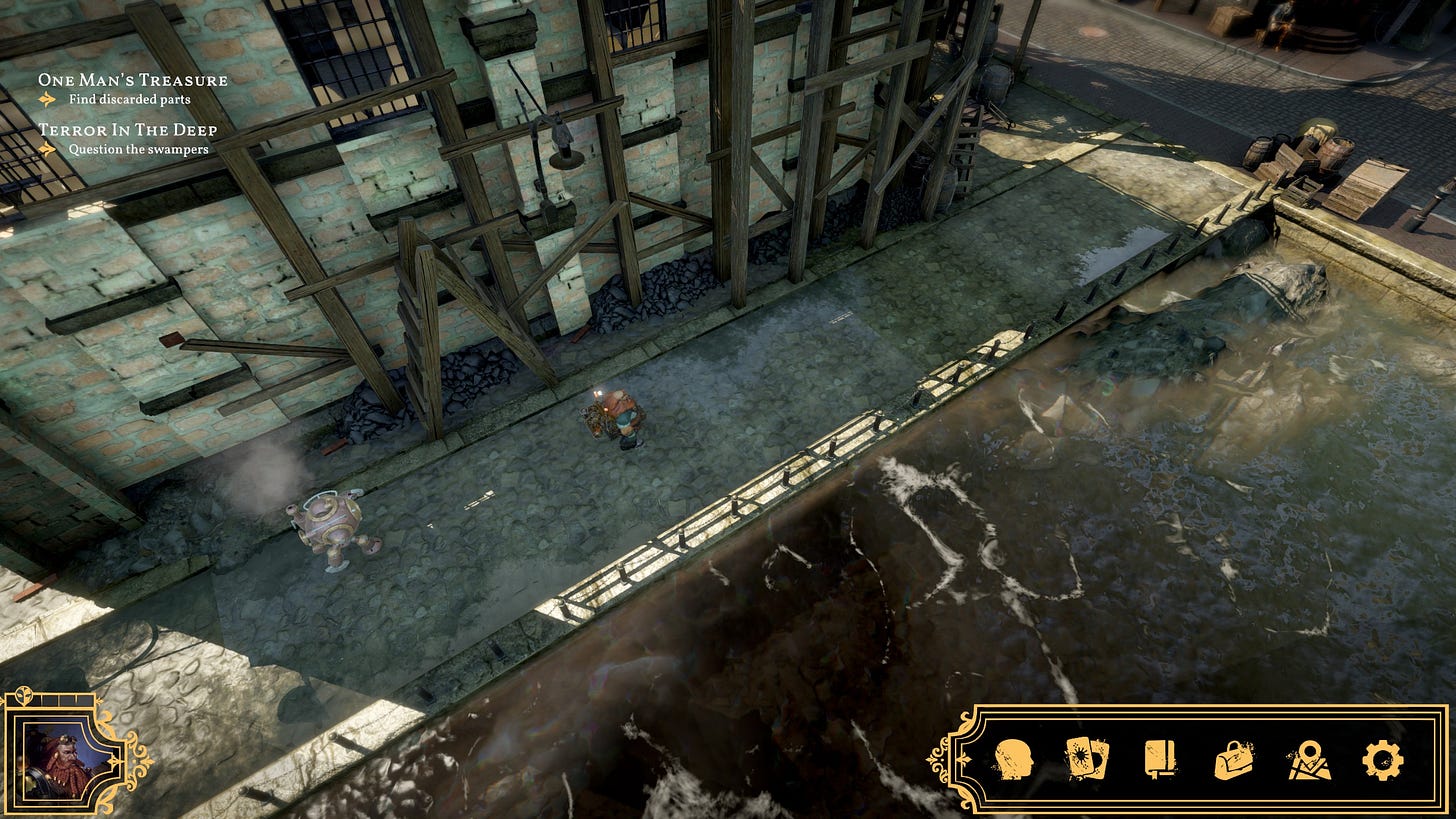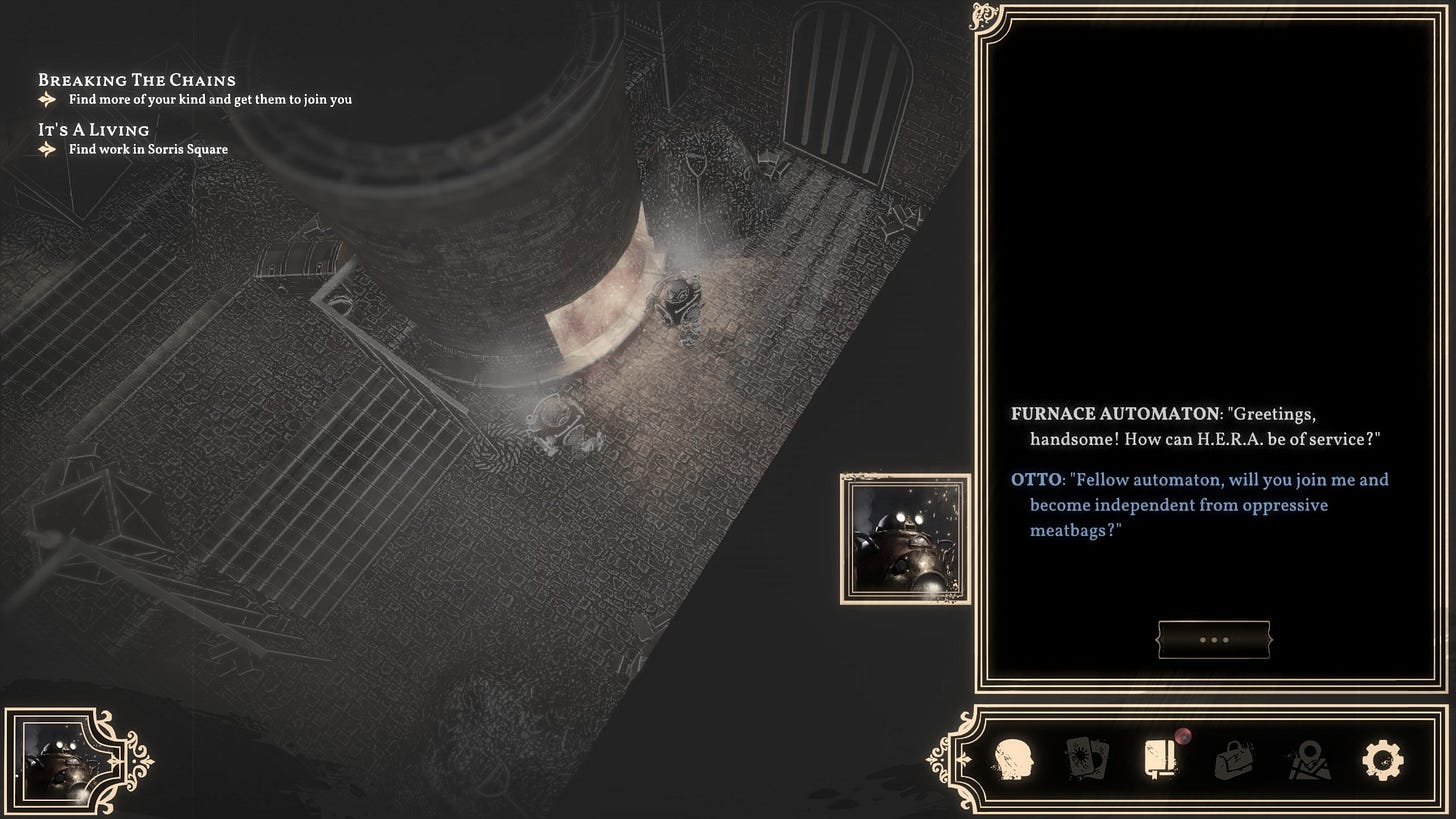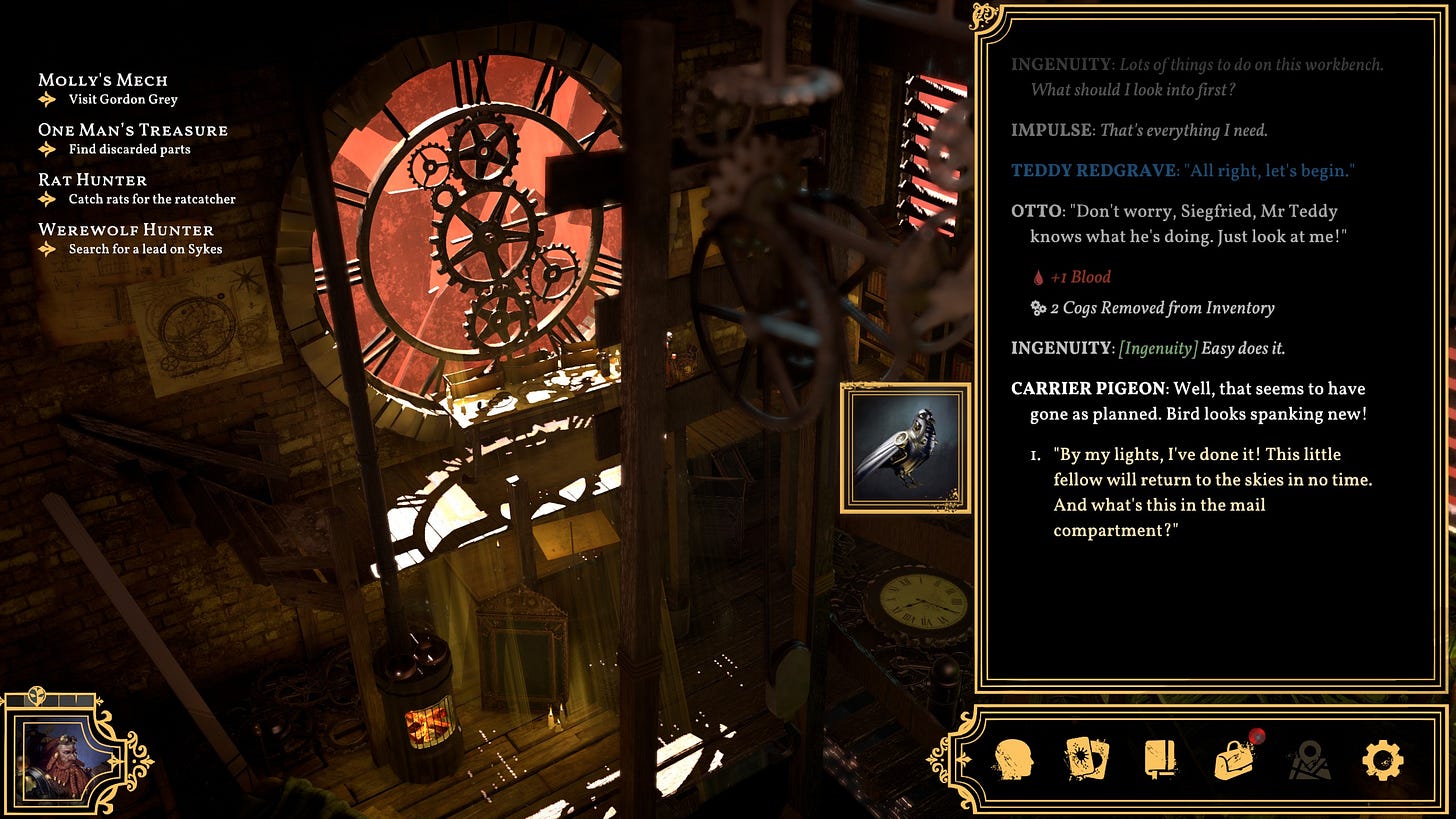Sovereign Syndicate — Extraordinary Folk
Review
In my preview, I mentioned only the first character you play as in Sovereign Syndicate: the Minotaur party animal Atticus Daley. The demo consisted only of the first chapter, after Atticus wakes up from a bender. I thought he would play the biggest role in the story, but he is one of three playable characters alongside the American courtesan Clara Reed and the Irish Dwarf inventor Teddy Redgrave, with his trusty automaton Otto. All of them have an equal claim to the story. Otto is also briefly playable at one point, though that might hinge on your choices along the way.
After my first playthrough, I found that Sovereign Syndicate builds on the principles of the dialogue system in Disco Elysium, repurposing it to a steampunk fantasy setting with cohesive, lore-friendly details. This Disco-like system is humbler and simpler, where the inner life of each character is not quite as elaborate. The game feels more pragmatic and less prone to flights of fancy or quirky side stories, though some side quests also feel like red herrings. So the studio’s name makes sense.
I liked Sovereign Syndicate even more than I anticipated in my preview; it was my Christmas game over several hours. After eighteen chapters playing as Atticus, Clara, Teddy, and a couple as Otto, I saw the credits roll and wanted to keep playing. Now, halfway through a second playthrough, I hope we will see much more of this Victorian steampunk London in sequels, and more strange stories of Minotaurs, Dwarves, Cyclopes, and others—a league of extraordinary fantasy folk.
Choose Your Own
This is a relaxing game where you don’t have to stress about not being able to meet a challenge or to find solutions for difficult puzzles. No outcome in Sovereign Syndicate is the correct one; your choices will only make you curious about other choices. The game even allows the player to refuse to join the league at the end, with a solo ending. I imagine sequels would likely hinge on the league being established, but the possibility of player choice matters, and the developers respect it.
The tarot deck-building system is simple but effective. I am not sure how much different the game plays depending on different choices of cards and attributes, but the less sensible options were fun to play with as well. There is no combat, but there are odds you can fail based on the traits you chose at the beginning. Skills also stagnate from a lack of use, and you can min-max certain skills to find some dialogue outcomes that might not be available to those who focused on other skills.
Minotaur Naturalism
While playing as Clara Reed, I went to the bathhouse in Red Lantern Lane. I had no real reason to be there, but the Centaur bouncer told me they don’t allow women in the opium den. Clara asked why not; it can’t be out of concern for women’s health. He said it’s because men will take advantage of women under the opium. Now, why did the developers include such a detail? It makes the world feel more real, grittier.
This is the “Dickensian aspect” in fantasy; naturalistic details that might go unnoticed. When you pay attention to the narrative and the character writing, you see that the writers really tried to think carefully about all of this. But, well, this is also a game where you play as a Minotaur carrying a cane-sword and wearing a top hat. It doesn’t have to offer broad social commentary; it can just look cool and fun to play.
Victorian Logistics
I found the game design efficient overall, but the journal could make finding certain NPCs easier and more convenient. Sometimes you have to remember where you found an NPC and make your way back to a particular spot in the maps, which are sometimes fairly spacious. This is a common problem in CRPGs in general; the player is always a middleman between different parties, either in conflict or diplomacy.
The dialogue UI pop-up for each minor hotspot interaction in levels felt unnecessary, especially when it was just a line of description or a comment. The game could also use more keyboard support: transitioning between loading screens with a key; toggling the key to highlight hotspots. These issues are minor inconveniences, but not dealbreakers, and it’s common for QoL improvements to come after launch.
Cutting Teeth
This is a robust debut title, a solid product where everything works properly and there were no bugs or issues that I could identify. I could nitpick minor issues in input and UI, but I didn’t have a single crash or issue with the game design itself. Everything is smooth and clear; I spotted only a couple of typos over hundreds of lines. This is how games should release. It’s the bare minimum that makes a difference these days.
I don’t think the game requires voice acting, but if they add it post-launch (as ZA/UM did with Disco Elysium) I hope it will be implemented as optional. The dialogue can often sound stilted, as Victorian speech and writing was, and that might not translate that well into voice acting. Other QoL improvements might be welcome as the game finds its own audience, but this is as polished as it gets for an indie launch.
Steampunk Anthology
Sovereign Syndicate is openly influenced by Disco Elysium and writers like Oscar Wilde, Charles Dickens, and Jules Verne. It also took me back to The Difference Engine by William Gibson and Bruce Sterling. The ending feels almost like a direct reference to the graphic novels by Alan Moore, The League of Extraordinary Gentlemen. These literary and comic book references go well together with the complexity of the fantasy worldbuilding in the vein of Planescape: Torment.
This is a new IP that takes fantasy and fantastical reality seriously. I hope it will find the audience it deserves and continue to develop this world in sequels with more expansive quests and deeper character engagement. As a debut title, this is a solid basis that delivers on introducing some of its main characters and its dialogue system. It leaves you wanting more, though it satisfies what it set out to accomplish, like those old serial novels that surged in popularity in the Victorian era.
Disclosure: Sovereign Syndicate was reviewed on PC with a Steam key provided by the developer over the course of dozens of hours of play time. All screenshots attached were captured during the review process.
Rating: 9.5 / Essential.
The Good
Compelling worldbuilding;
Simple but robust dialogue system;
Cool character design;
Minimal, efficient game design;
Interesting allusions and references;
Lots of potential for more.
The Bad
Minor UI and input issues.
Gallery
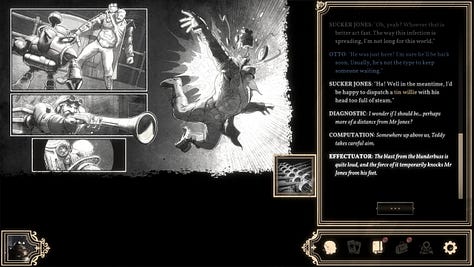
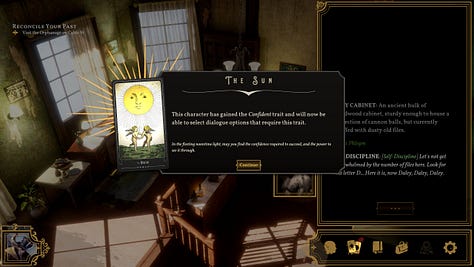
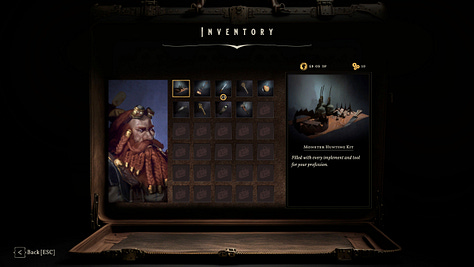
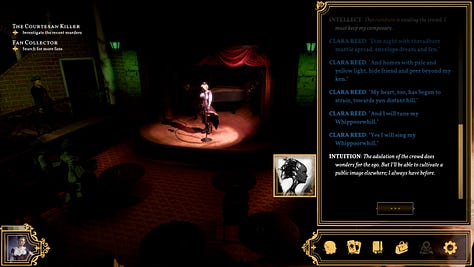
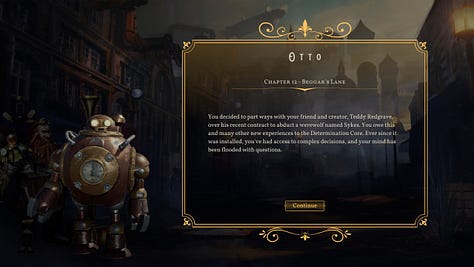
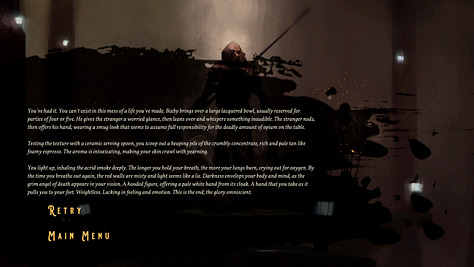
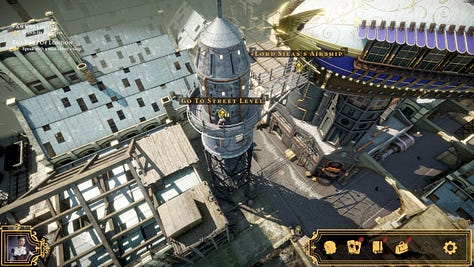
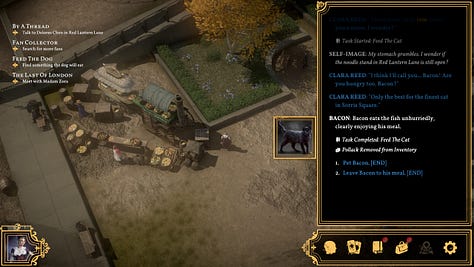
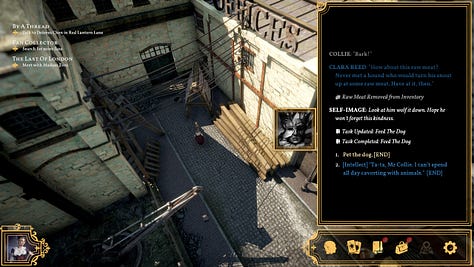
Sovereign Syndicate will release on January 15 on Steam and GOG. More information is available on the developer website.


